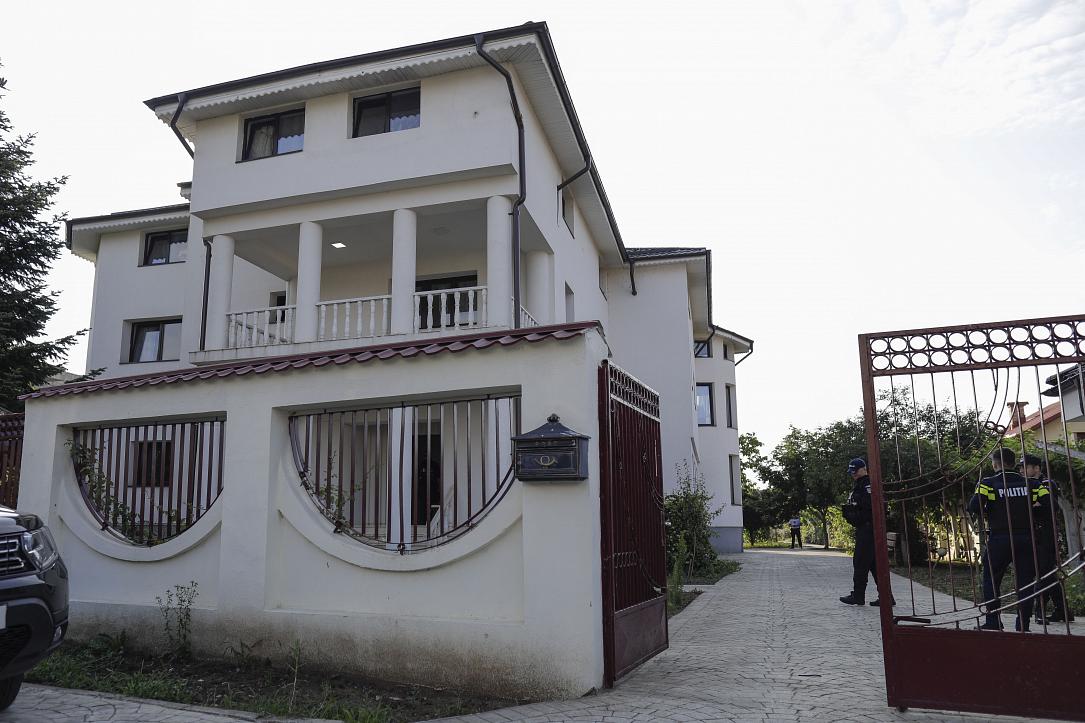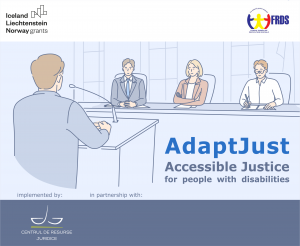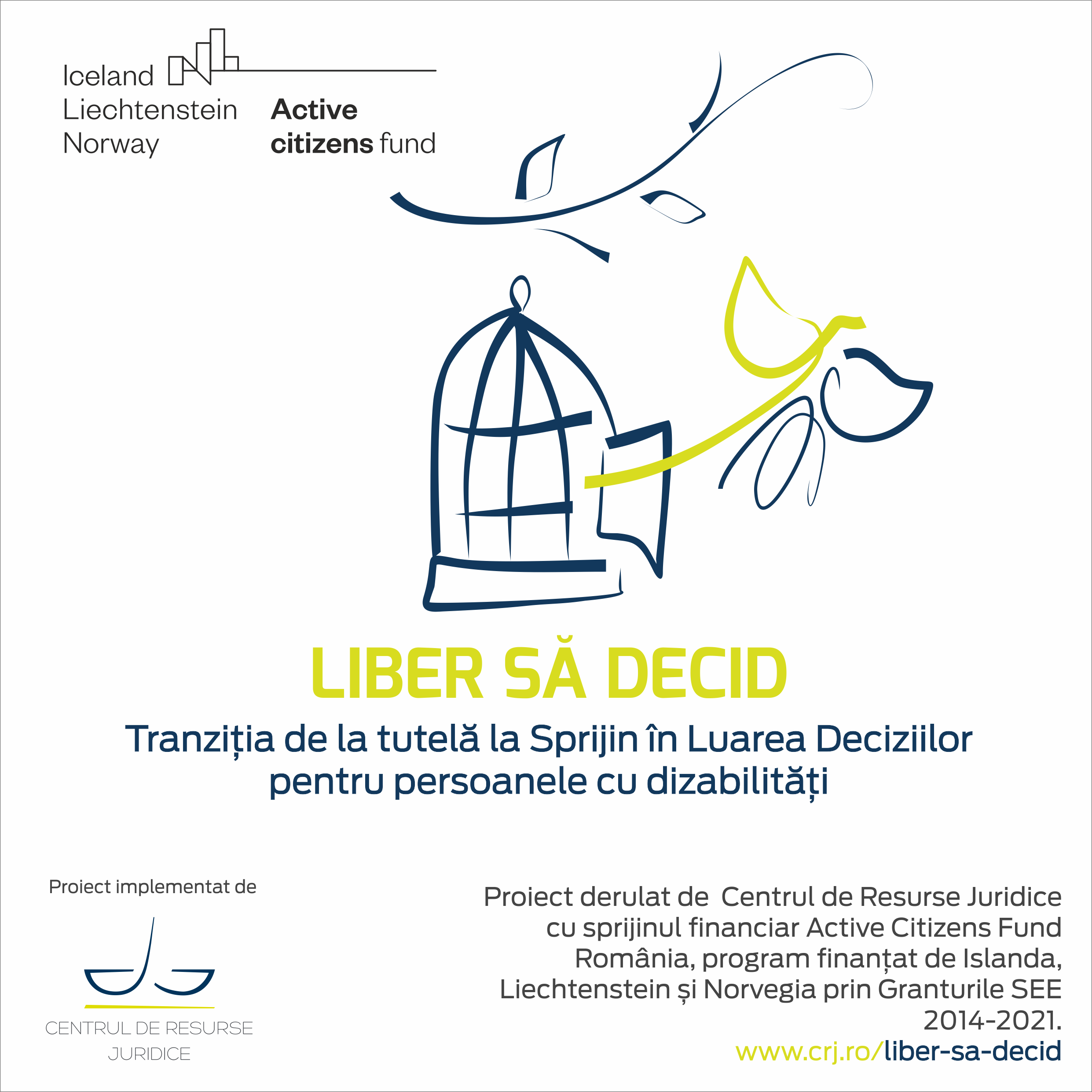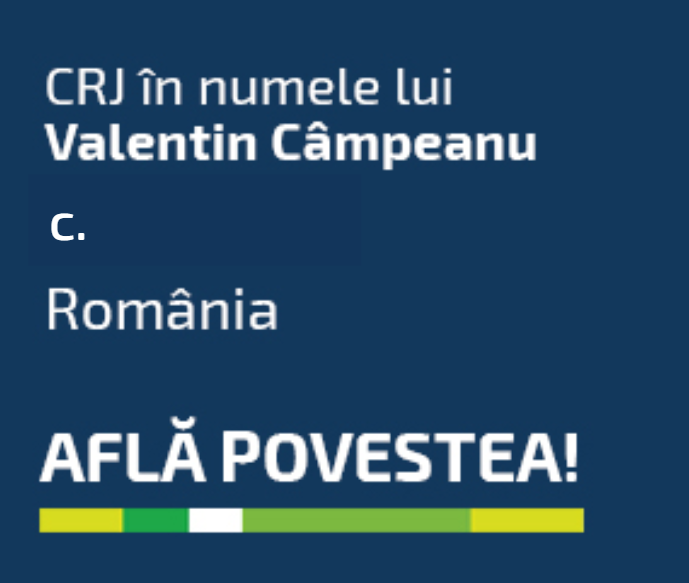We would like to thank Validity Foundation, a human rights organisation that focuses on the situation of people with intellectual and/or psychosocial disabilities, for its open letter addressed to the Romanian Government and the international community. In defending the rights and dignity of people with intellectual and/or psychosocial disabilities, we consider any form of solidarity necessary and important. We appreciate the initiative taken and the efforts made.
The letter can be read below, in both Romanian and English.
The following is an open letter on behalf of the Validity Foundation to the Government of Romania and international bodies concerning recent events in Romania (list of recipients below).
| On 4 July 2023, the Romanian Directorate for Investigating Organized Crime and Terrorism (Direcția de Investigare a Infracțiunilor de Criminalitate Organizată și Terorism, DIICOT) together with other Romanian public authorities searched several residential centers for older persons and persons with disabilities. Initially the search covered three residential centers in Ilfov county (Centrul de Îngrijire şi Asistenţă pentru Persoane Adulte cu Dizabilităţi „Sfântul Gabriel cel Viteaz”; Centrul Rezidenţial de Îngrijire şi Asistenţă Persoane Dependente „Casa Cora” and Centrul de Îngrijire şi Asistenţă pentru Persoane Adulte cu Dizabilităţi „Armonia”). The searches have been widely covered in the Romanian press (see here, here or here) and reveal a shocking reality: residents were kept in spaces not fit for human living, with insects, in an advanced state of disrepair and squalor. Residents were left malnourished, the food offered being far below any acceptable standard, and there are allegations of numerous grave human rights violations and exploitation against residents. The DIICOT investigtions follow earlier reports of Romanian NGO, Center for Legal Resources (CLR), (see here for articles by investigative journalists). With over 20 years’ experience in monitoring institutions for persons with disabilities, CLR had repeatedly attempted to draw the attention of the Romanian authorities to the squalid conditions, malnourishment, the lack of training of staff or their insufficient number, as well as signs of physical violence against residents, which had never been investigated or monitored by any independent authorities. Moreover, CLR and media reports point to many deaths of residents in institutions which have never been officially investigated. The Validity Foundation, as an organisation specialised in defending the rights of persons with disabilities and having extensive experience in litigating and upholding international standards in this field, herewith expresses serious concern about the situation in Romania. We feel compelled to highlight the international human rights standards which should have been followed, and which now must be followed by the Romanian authorities. We also call on all relevant international bodies and regulatory mechanisms to urgently investigate. First and foremost, Romania ratified the UN Convention on the Rights of Persons with Disabilities in 2010. This Convention protects, among others, the rights of persons with disabilities to live in the community and sets out the obligations of the state to facilitate independent living. We note that under the guise of offering ‘community-based services’, Romanian authorities have instead sanctioned private actors to lock up persons with disabilities in closed institutional settings. The living conditions documented both by civil society and the media amount to torture, under the caselaw of the European Court of Human Rights and pursuant to the Romania’s obligations under the UN Convention against Torture. Moreover, they are not community-based services within the meaning of Article 19 of the Convention on the Rights of Persons with Disabilities. We note with concern that the state has delegated the delivery of public services (the care and protection of older persons and persons with disabilities) to private providers, resulting in a dangerous situation of impunity. We wish to highlight that under the case law of the European Court of Human Rights, the State cannot discharge of its obligations by delegating public services to private providers (O’Keeffe v Ireland, European Court of Human Rights judgment of 28 January 2014). The European Court has repeatedly held that public authorities must maintain effective measures to deter abuse. We recall that institutionalisation of persons with disabilities itself violates international law. Further, concerning the provision of public services – including when delegated to private providers – the European Court has imposed obligations of strict accreditation, training of personnel, ensuring effective and regular independent monitoring visits, and ensuring recipients of services can complain. We note with concern that none of these obligations have been met in Romania, and that the serious abuses being uncovered result from the country’s faulty ongoing approach to institutionalising persons with disabilities. Older persons and persons with disabilities in the Ilfov institutions had no means to complain to the outside world about the situation they found themselves in. Even the most basic communication means, such as a telephone, were not available to them. Moreover, we also note that the repeated alerts made by the CLR to the Romanian authorities, including to the Ministry of Labour, were met with removing the right of this organization to carry out ad hoc visits to these segregated and isolated places, hiding the most egregious human rights abuses. The Romanian Government must immediately restore the right for independent actors including CLR and other representatives of civil society to visit all places of detention of persons with disabilities without delay. We stress that these failures expose Romania to infringements of Article 2 (right to life) and 3 (prohibition of torture) of the European Convention on Human Rights. In calling on the Romanian authorities and relevant international bodies to urgently investigate and provide reparations and redress to the victims, we note that this situation is not unique either to Romania, nor across Central and Eastern Europe. The European Court of Human Rights has found numerous infringements of the rights of persons with disabilities in 13 judgments against Romania, and in many other judgments against neighboring countries. The Council of Europe Committee of Ministers has consistently held the states accountable for failing to implement these judgments domestically. We also highlight that the European Union, through European Union Structural Funds has disbursed or will be disbursing large amounts of money to all countries in Eastern Europe, including Romania, purportedly to aid to their ‘deinstitutionalisation’ processes. Private structures, such as those exposed in the recent investigations in Romania, may very well be recipients of European Union funds. Unfortunately, the Validity Foundation and our partners have repeatedly identified misuse of such funds by countries across Central and Eastern Europe, using these to promote institutionalisation rather than inclusion in the community. We regretfully observe that without closer monitoring and enforcement of EU law by the competent bodies, including the European Commission, progress on deinstitutionalisation has floundered, and persons with disabilities continue to experience grave violations of their rights. Such situations must be prevented, and we again call on the European Commission to ensure proper human rights protections when financing social inclusion schemes across the EU, in accordance with its obligations under the Charter of Fundamental Rights and the United Nations Convention on the Rights of Persons with Disability. Against the background of these systemic failures, Validity calls on the Romanian Government and the international community to immediately prioritise assistance, reparations and redress to the victims of Ilfov. We welcome the urgent steps that have thus far been taken by the State Prosecutors Office, but we remind the Romanian authorities that investigations and prosecutions will not be sufficient. We therefore make the following urgent recommendations. To the Romanian Government A full, thorough and independent investigation into all allegations of torture and ill-treatment, exploitation, violence and abuse against persons with disabilities and older persons must be carried out with care and speed, at the Ilfov institutions and all other institutions where concerns have been raised, whether publicly or privately maintained. Reparations and redress must be guaranteed to all victims, including compensation, restitution, habilitation and rehabilitation, and guarantees of non-repetition. Measures must be immediately taken to provide all services necessary for persons to move into the community with support. Accountability for abuses must not be limited to administrative sanctions of individuals, but must instead focus on the responsibility of all authorities and duty bearers who knew, or should have known, what was occurring. We remind the Romanian authorities that it is not sufficient to simply move persons from one institution to another (so-called ‘transinstitutionalisation’). We strongly advise against investing further in ‘improving conditions’. Instead, effort must be focused on ensuring the transition of all persons with disabilities currently living in institutions to living independently in the community with the support they require. We also call for immediate and unfettered access to be ensured to independent monitors and civil society representatives to all institutions for persons with disabilities, and the immediate restoration of access to representatives of the Center for Legal Resources. Immediate steps must be taken, with the full involvement of persons with disabilities, including survivors of institutionalisation, to fundamentally revise the nation’s deinstitutionalisation process, bringing it immediately in line with Article 19 of the Convention on the Rights of Persons with Disabilities, General Comment No. 5 of the Committee on the Rights of Persons with Disabilities, and the Committee’s associated Guidelines on Deinstitutionalization, including in Emergencies. Survivors of institutionalisation, their representative organisations, and other representatives of civil society must be prioritised as leaders of this process, and those involved with the maintenance or control of abusive services must be excluded. To the International Community We call on specialised international monitoring bodies, including the Council of Europe Committee for the Prevention of Torture (CPT) and the United Nations Subcommittee on the Prevention of Torture (SPT), to undertake urgent ad hoc monitoring visits to Romania, to investigate the situation at centres detaining persons with disabilities. The ownership of such settings, whether public or private, and their legal categorisation (‘community-based service’, ‘institution’), should be irrelevant. Reports should be made public in the shortest time possible, with the cooperation of the Government of Romania. We call on relevant international human rights mechanisms to exercise their mandates to investigate and enquire into the circumstances at the Ilfov institutions, and the State’s failed approach to deinstitutionalisation of persons with disabilities. We urge the mechanisms to provide recommendation and technical assistance to Romania in providing redress and reparations to victims, and revising its national deinstitutionalisation strategy in accordance with international law. We call on the European Union and its agencies to immediately investigate alleged violations of the Charter of Fundamental Rights, the UN Convention on the Rights of Persons with Disabilities, and the Romanian Government’s use of European Structural and Investment Funds – both in Ilfov, and in terms of national deinstitutionalisation policy objectives. The outcomes of such investigations must be made public, with the cooperation of the Government of Romania. Survivors of institutionalisation, their representative organisations, civil society and independent monitoring authorities should be involved in the design and analysis of any investigation, and the outcomes must be published, with the cooperation of the Government of Romania. The European Commission should exercise its legal powers to suspend or reclaim funds that have, or may have, been used to reinforce institutionalisation of persons with disabilities in Romania. |
List of recipients
Romania
- Klaus Iohannis, President of Romania
- Marcel Ciolacu, Prime Minister of Romania
- Marian Neacţu, Deputy Prime Minister of Romania and Interim Minister of Labour and Social Solidarity
- Renate Weber, Ombudsman of Romania
- Alex Florin Florence, Prosecutor General of Romania
EU
- Charles Michel, President of the European Council
- Ursula Von Der Leyen, President of the European Commission
- Didier Reynders, Justice Commissioner
- Helena Dalli, Equality Commissioner
- Elisa Ferreira, Regional and Urban Affairs Commissioner
- Emily O’Reilly, European Ombudsman
- Laura Codruța Kövesi, European Chief Prosecutor
- Klaus-Heiner Lehne, President of the European Court of Auditors
- Juan Fernando López-Aguilar, Chair, European Parliament Committee on Civil Liberties, Justice and Home Affairs (LIBE)
Council of Europe
- Alan Mitchell, President of the European Committee for the Prevention of Torture and Inhuman or Degrading Treatment or Punishment
- Dunja Mijatović, Commissioner for Human Rights of the Council of Europe
- Helga Gayer, President of the Group of Experts on Action against Trafficking in Human Beings (GRETA)
United Nations
- Claude Heller, Chair of the Committee against Torture (CAT)
- Gertrude Fefoame, Chair of the Committee on the Rights of Persons with Disabilities (CRPD)
- Gerard Quinn, Special Rapporteur on the Rights of Persons with Disabilities (SR Disability)
- Alice Jill Edwards, Special Rapporteur on Torture and Other Cruel, Inhuman or Degrading Treatment or Punishment (SR Torture)
- Balakrishnan Rajagopal, Special Rapporteur on the Right to Adequate Housing (SR Housing)
- Claudia Mahler, Independent Expert on the Enjoyment of All Human Rights by Older Persons
- Priya Gopalan, Chair of the Working Group on Arbitrary Detention (WGAD)
Source:






